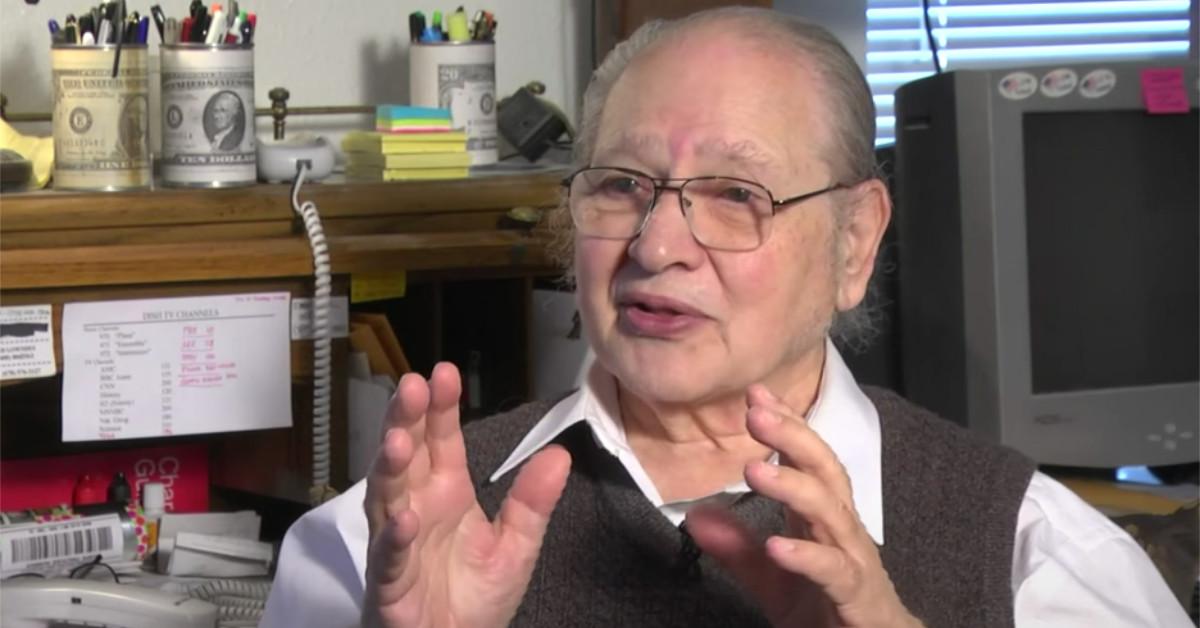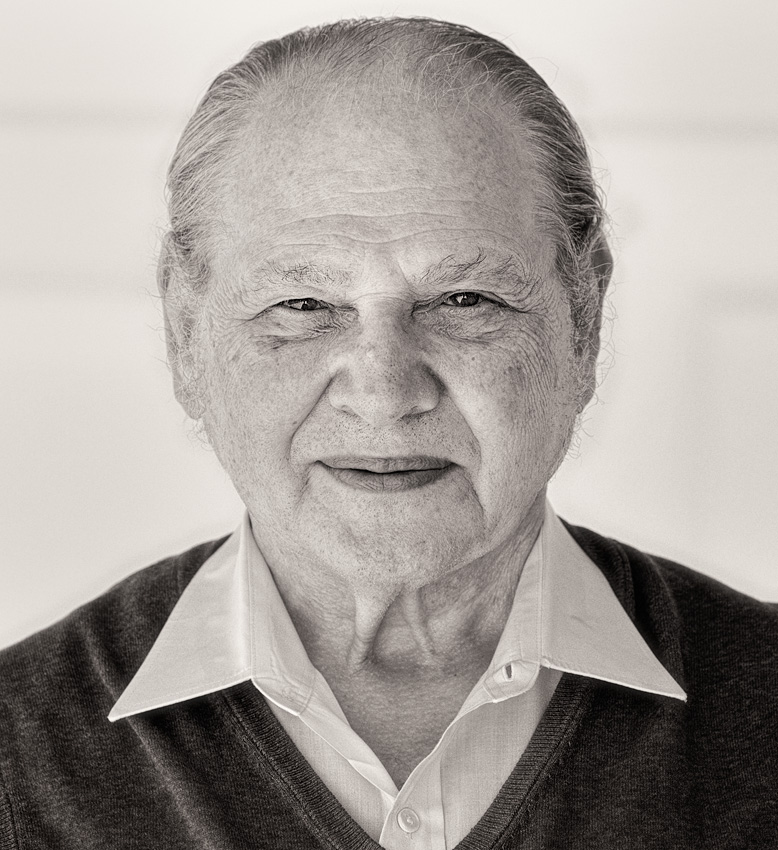Ronald Wayne Net Worth: What You Need To Know Today
Could you imagine walking away from a company that would later become a global behemoth, a company poised to revolutionize the world, and leaving with less than a thousand dollars? This is the story of Ronald Wayne, the often-overlooked third co-founder of Apple, and a decision that would define his life, for better or for worse.
Born on May 17, 1934, in Cleveland, Ohio, Ronald Wayne's name is often eclipsed by the towering figures of Steve Jobs and Steve Wozniak. Yet, in the annals of technological innovation, Waynes contribution, however brief, remains significant. He was there at the genesis, a participant in the creation of a company that would fundamentally alter the landscape of personal computing and, subsequently, the very fabric of modern life. Waynes early involvement in Apple, from its inception on April 1, 1976, to his eventual departure, provides a fascinating study in the unpredictable nature of business, the weight of foresight, and the enduring human capacity for self-assessment. His story serves as a potent reminder that decisions made in the heat of the moment, under the pressure of uncertainty, can have consequences that echo across decades.
| Attribute | Details |
|---|---|
| Full Name | Ronald Gerald Wayne |
| Born | May 17, 1934, Cleveland, Ohio, USA |
| Nationality | American |
| Occupation | Retired Electronics Industry Business Executive |
| Known For | Co-founding Apple Computer |
| Role at Apple | Provided business and administrative oversight, designed the original Apple logo, wrote the Apple I manual. |
| Net Worth (2024/2025) | Estimated at $400,000 |
| Reason for Leaving Apple | Fear of financial risk and potential liabilities associated with the fledgling company. Sold his 10% stake for $800. |
| Apple Stake Value (if held today) | Would be worth billions (estimated to be over $300 billion in today's market) |
| Education | Graduated from the School of Industrial Arts in New York (1953) |
| Current Status | Retired; living and pursuing personal projects, including writing. |
| Key Decision | Selling his Apple stake in 1976 |
| Regrets | Wayne has stated he has no regrets about his decision, given the circumstances at the time. |
| Notable Quote | "I made the best decision based on the information I had at the time." |
| Reference | Ronald Wayne - Wikipedia |
Wayne's role in the Apple story, while brief, was multifaceted. He wasn't just an investor; he was a critical thinker, a stabilizer, and a pragmatic voice in the early, chaotic days of the company. He drafted the original partnership agreement, providing the legal and administrative framework necessary to give the burgeoning enterprise structure and legitimacy. Beyond the paperwork, Waynes contribution to Apples visual identity included designing the company's original logo, a complex image depicting Isaac Newton under an apple tree. He also wrote the Apple I manual, ensuring that the nascent technology was accessible and understandable to early adopters. His contributions, while not as publicly celebrated as those of Jobs and Wozniak, were crucial in laying the groundwork for Apples eventual success.
- Brandi Passante The Storage Wars Stars Life Comeback Updates
- Explore Legal Porn Free Adult Videos Scenes Discover Now
The pivotal moment in Waynes Apple narrative came just two weeks after the companys founding. The financial and personal risks associated with the company weighed heavily on him. The demands of entrepreneurship, the potential for personal liability, and the volatility of the business environment in 1976 led Wayne to a decision that would forever alter his financial trajectory. He sold his 10% stake in the company for a mere $800. This decision, viewed in retrospect, seems almost unfathomable. The same stake, if held until today, would be worth an astronomical sum, potentially over $300 billion, depending on the current market valuation of Apple.
The contrast between the relatively modest sum Wayne received and the staggering wealth his stake would have generated is a constant point of fascination and speculation. The situation begs the question: how does one reconcile a decision that, in the grand scheme of things, appears to have been a colossal missed opportunity? Wayne, in his many reflections on this pivotal moment, has consistently emphasized that he made the best decision he could, given the information available to him at the time. The pressures of a fledgling company, coupled with his own financial concerns, led him to prioritize stability and security over the long-term gamble of remaining invested. He had a family to consider, and the risks of the nascent computer market were too great for him to bear at that stage.
This narrative highlights the unpredictable nature of business and the often-difficult choices that entrepreneurs face. Waynes departure from Apple serves as a poignant reminder that success isn't always a linear progression, and decisions that seem inconsequential in the moment can have enormous implications down the road. It is a story of practical risk assessment, of weighing immediate needs against potential future gains, and of the inherent uncertainty that defines the entrepreneurial journey.
Wayne's story is particularly relevant today, in an age where entrepreneurship is often romanticized, and the potential for overnight success is widely publicized. His experiences illuminate the challenges that accompany the pursuit of innovation, highlighting the necessity of making calculated decisions based on the available information and the willingness to accept the consequences. Furthermore, it provides a counterbalance to the narrative of relentless ambition and unwavering perseverance that often dominates discussions about business success.
The narrative often portrays Wayne as a cautionary tale, a man who missed out on unimaginable wealth. However, this interpretation ignores the complexities of his decision-making process. It is essential to remember that Wayne was not a fortune teller. He made a rational decision based on his understanding of the situation, and its easy to second-guess such choices with the benefit of hindsight. Moreover, Wayne has consistently maintained that he has no regrets about his decision. He has found contentment in a life that, while not marked by the extraordinary wealth that Apple generated, has allowed him to pursue other interests and maintain a degree of personal autonomy. The fact that he does not regret the choice underscores the fact that financial success is not the only measure of a fulfilling life.
Wayne's life after Apple has been marked by a series of other pursuits. He continued to work in the electronics industry for some time, but also pursued other creative endeavors. He's an author, a stamp collector, and a man who appreciates the simple things in life. His life choices illustrate that, while money can provide comfort and opportunities, it does not guarantee happiness. Wayne has shown that a life of purpose, grounded in self-awareness and personal values, can be just as rewarding as the accumulation of great wealth. Furthermore, he has demonstrated the value of rational decision-making, based on available evidence, rather than being driven by impulsive actions or being overly influenced by external expectations.
The story of Ronald Wayne and Apple also touches on the broader themes of innovation and disruption. Wayne was present at a time when personal computing was an emerging phenomenon. His departure from Apple shows how difficult it is to foresee which nascent technologies will transform the world. He understood the potential of what was happening but felt the risks were too great, which is a reasonable position to take at the time. This underscores the inherent unpredictability of technological advancement and the challenges of identifying truly transformative innovations in their early stages.
Wayne's early contributions to the company also highlight the importance of a diverse set of skills in the entrepreneurial environment. While Jobs and Wozniak were the visionaries and the technical geniuses, Wayne provided the organizational and administrative stability needed to move the company forward. His role demonstrates the often-overlooked importance of business acumen, legal understanding, and clear communication, particularly in the formative stages of an innovative venture. It is, in other words, a testament to the significance of a well-rounded team that can tackle challenges from multiple angles.
The impact of Apple on society is undeniable. The company's products have reshaped communication, entertainment, and even the very way we work. Wayne's early involvement in the company means he has, to some degree, shaped the modern world, and he should be credited for that. While his financial circumstances may differ from those of his former colleagues, his contribution to a monumental cultural and technological shift can not be forgotten. His story provides an important lesson: that ones contribution to something great need not necessarily be measured by financial outcomes alone.
In today's world, where rapid technological advancements and the rise of new business models are constantly reshaping industries, the lessons from Waynes experience are very valuable. It reminds entrepreneurs of the critical importance of carefully evaluating risks, of understanding the conditions under which they are operating, and of making well-informed decisions. It reminds them that even the most promising ventures entail significant risk and that every decision should be made with an awareness of the potential consequences. This perspective becomes even more important in an era of high volatility and accelerated change. It also reminds us that defining success is a personal endeavor. While wealth often serves as a metric, contentment and personal satisfaction can also be crucial elements.
Ultimately, Ronald Waynes story isnt about a missed fortune. It is about a pragmatic assessment, an informed choice made at a specific time, and a life lived with a clear understanding of personal priorities. It's a narrative that reminds us that even in the most exciting and dynamic environments, caution and foresight are valuable. It is a reminder that true success can come in various forms and that, occasionally, the greatest value lies not in what is gained but in how one lives with the choices they have made.
Waynes legacy is not just as a co-founder of Apple, but as a testament to the complexity of the entrepreneurial spirit, a symbol of rational decision-making, and an emblem of how we define success. His life offers a valuable perspective on the human experience, reminding us that our lives are defined not only by our achievements but also by the choices we make along the way. His story is a reminder that sometimes, the most significant lessons are learned from the decisions we didn't make and that the true measure of wealth is not just financial, but also about how we shape our lives, our experiences, and the legacy we leave behind.

Why Did Ronald Wayne Leave Apple? Details on the Co Founder

Ronald G. Wayne » Photo Blog by Rajan Parrikar

Ron Wayne, Apple co founder, cashes out Today in Apple history